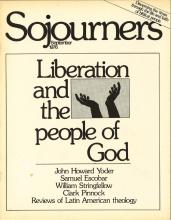One of the ever-present sights this bicentennial year has been the Declaration of Independence. Although the document is the pride of the United States, many Americans have rejected it, charging that they don’t see in our nation much of what the declaration promises. And so they say the document is a lie.
I’m convinced that those who reject the Declaration of Independence do so because of a simple misunderstanding. For some reason, they think the document guarantees life, liberty, and the pursuit of happiness. Well, it does not. It simply states that all are entitled to the freedom to pursue these rights. All it guarantees is the struggle to make these rights real.
Christians should have no difficulty with this, since we know that the only guaranteed life, liberty, and happiness is through a relationship with Jesus Christ. We are in a position of unique response to the Declaration of Independence, for some of the things it speaks of are similar to Christian principles, but only in terms of struggling for them.
Speaking of the faithful of old, the writer of the book of Hebrews says, “These all died in faith, not having received the promises, but having seen them afar off, and were persuaded of them (promises) and embraced them, and confessed that they were strangers and ‘pilgrims in the land” (Hebrews 11:13). Why don’t we as Christians take this country’s promises (which we know are not reality, but yet are noble and eternal hopes) at their word and give them meaning? Why don't we take our roles as a pilgrim people, a people with a stranger's perspective, yet a people able to live with a meaningful hope?
Read the Full Article

